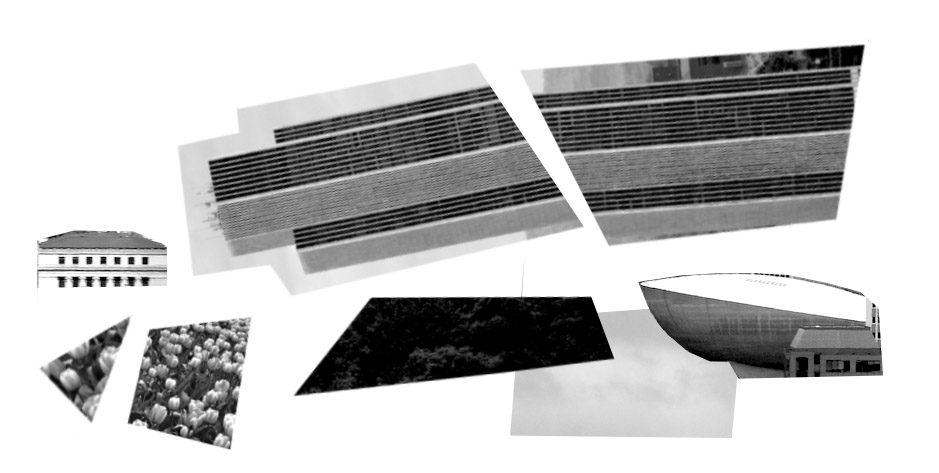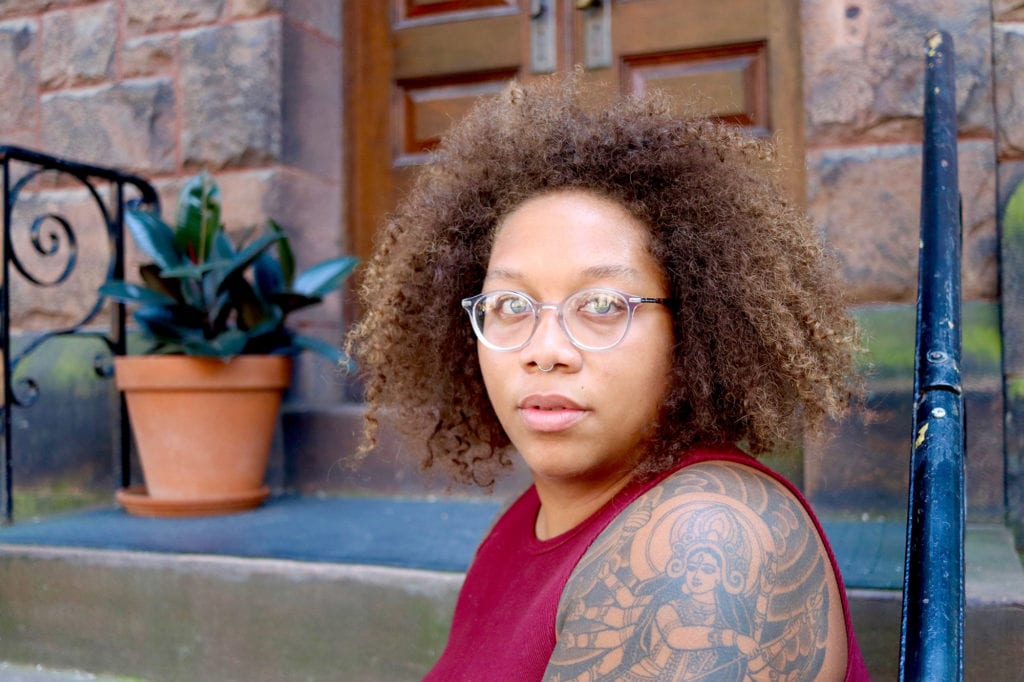
Shannon Straney sat down with Jammella Anderson, an Albany-based yoga teacher and doula whose recent activism work has included a series of stickers and t-shirts designed to gather funds in support of the Black Lives Matter movement. Working with local businesses and artists, Jammella has raised nearly $60,000 in the last month to be redistributed back into the Black community. The conversation has been lightly edited for space and clarity.
// What was the thinking when you started the first run of Black Lives Matter stickers? Did you anticipate the project being a continuous thing?
The woman who owns The Mailworks reached out to me because she had been seeing all the stuff I’d been posting online for weeks and weeks and weeks. She came to me and was like ‘I have this resource, I have the capacity to do this’. And I was like ‘alright, let’s do it’.
Once I saw how fast it happened, that was the point when I was like this actually could be something. The whole project kind of came to fruition. It was really crazy because usually I don’t really have a team to make a thing happen. It’s always, can my friend help me do this? She had a whole team of people. It was this resource that was effortless to work with.
As far as knowing what this could turn into… I think after the first week it was like this is what I’m gonna do now. All these ideas started coming to my head. The more ideas I had, the more people started to reach out to me and were like, I have a resource, I have a solution. And it’s very easy for them – that’s the thing that was really crazy. It’s even crazy for me how easy this is. That’s why it’s such a big deal that people are helping and showing up for Black and Brown people, because it’s so easy to do.

// One of the vinyl sticker runs you put out featured art by Rosy Sunshine, a Queer-Dominican artist whose work focuses on survival. What’s the importance of using platforms like yours to push this art?
All the people who have been reaching out to me about how to help the Black and Brown community — I’ve been doing what I can with what I have. I’m not trying to do something that I’m not capable of doing. My view of the world is through my eyes and my experience as a Black person. So with that I’m doing what is available to me, using that experience to help other people who may not have the voice or have the resource. I’ve always been really good at introducing people. So this is introducing a person to a resource, whether or not they had it before.
I’ve just been gawking over Rosy’s artwork forever. She had a piece she did a few years back and there was a little mistake – I think only she would see the mistake on it. But she gave it away for free and it was mine, so I’ve had my own Rosy original. She did one of the Capital Walls downtown. She’s someone I’ve had in my back pocket. Like when the right project comes, I’ll be able to talk to her and I know that she’ll work with me, because we already have a relationship. She lived in Albany for a while. She’s from the city, but she’s in D.C. now. There’s so many places she’s from – it’s bringing more and more awareness.
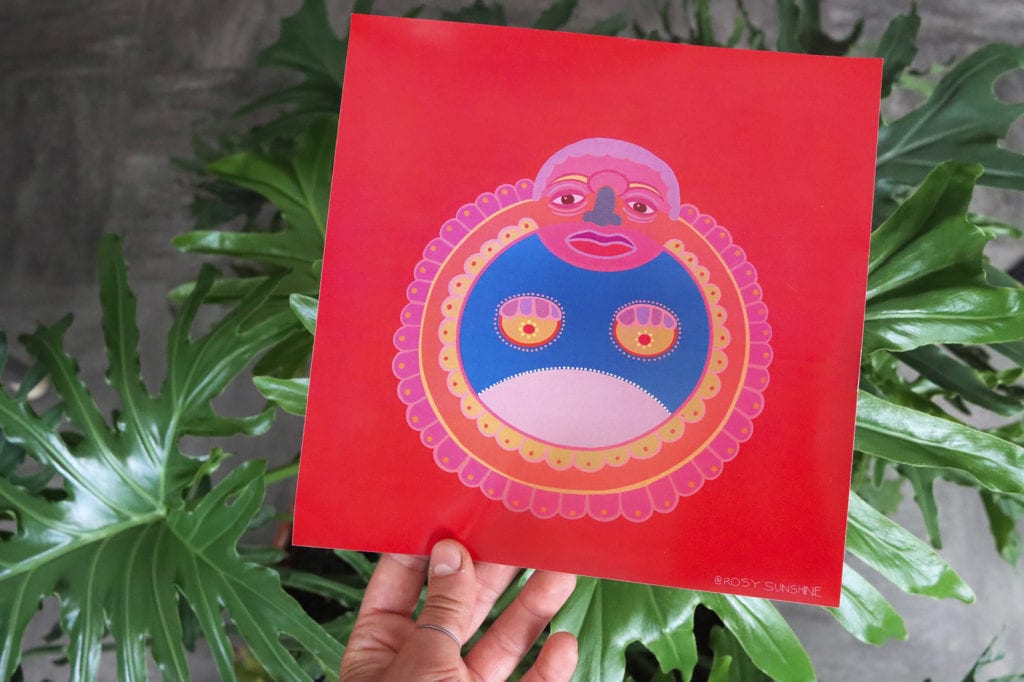
There’s a lot of artists in Albany who might not have the resources. Or even the time. Black people especially are thrown into this capitalistic system. We have to work. We don’t get to always give our passion projects life. We don’t always get to bring them to fruition because we are working. When everybody was doing the Occupy stuff and it was all white people… Why? Now, because of COVID, everyone can go out and protest. It’s created this space that we didn’t have before.
This is a very specific time to be an artist. It’s not just for your own creative outlet, it’s a part of a movement. So it’s even more special, it’s even greater because we get to all look back on this time and say we actually made a difference. It’s our generation that’s going to change everything. It’s going to take our foot power to actually get things moving. Art is doing that.
I’m doing stuff that people feel should be broadcast about, which is great, but all these other people are with me too. It’s taking the ego out of it. You have to realize that you’re not the center in any of this.
Amy Jones, she held the #SayHerName march in Albany. There was an amazing group of ferocious women. People in Albany think I’m doing something cool? Great, awesome. But I saw these women speak and it was like they were speaking just to me. They were like this isn’t for us, this is for you. This is for all of us. That was just a wow — even people who are in the spotlight are able to say it’s not about me, it’s about us. That to me is just so powerful. A lot of them talk about ancestral work, that we’re doing the work our ancestors couldn’t finish. It was just like really frickin’ powerful.
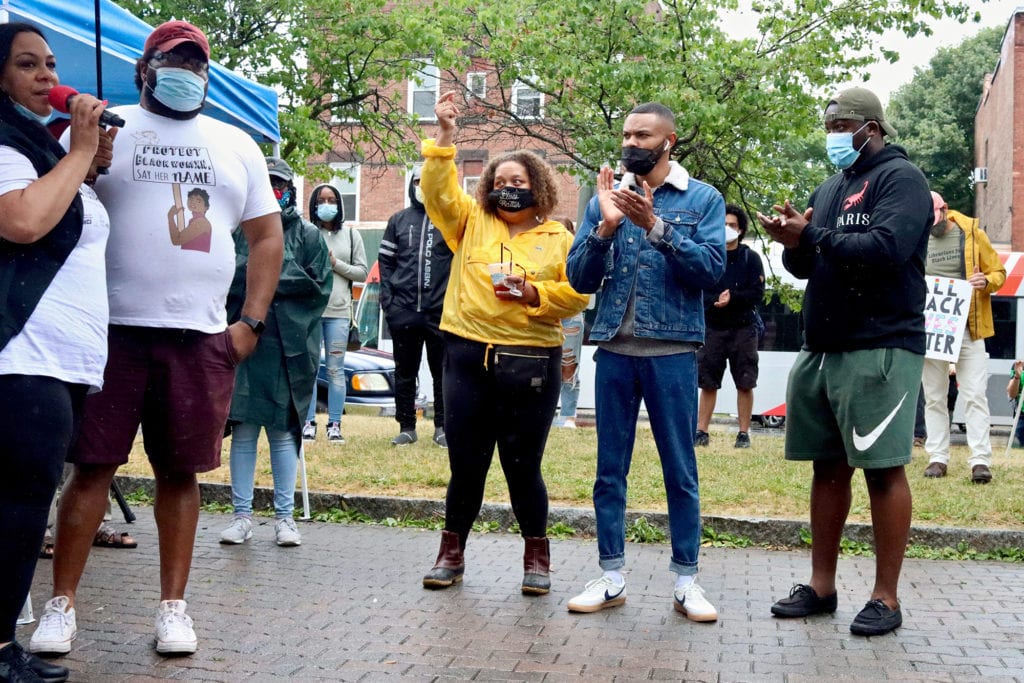
// Can we talk about reparations? The idea that you should be paying people for their work, and that has not always been done.
The Black community specifically has been dispersing money back into each other. When COVID first started, I had negative dollars in my bank account and I had no idea what I was going to do. Then people were giving other people money. For me I’m like, well, why would anybody just give me money? But people want me to be… not even just successful, but they want me to be able to eat. To survive, actually!
People started giving specifically to funds for Black people. Why do we need to hold on to all of this money? If you’re fed, taken care of, have a roof over your head, and then you have excess? Yes, you should be saving for your future, but also give money to other people who may not have the same leg up. Black people in general get paid less money than white people. Why not make up for that gap when you’re getting that extra money? And even businesses — I think every business should have a reparations fund. I think that everyone should be giving back to the Black community. Reparations doesn’t mean Black people are poor, it’s just money that’s always been deserved.
There’s the idea that we have been doing emotional labor for people for our entire lives, especially as Black women. It’s something that people think is just deserved, and it’s not. It’s emotional labor. It really is work. It’s work I’ve had to do, it’s work I’m still doing, it’s work that I’m working through. The idea of paying someone reparations is because that is labor that they have done and it shouldn’t go unheard or unpaid. It’s another form of artwork. It’s another form of poetry and literature, to say it to people in a way that they can digest and understand.
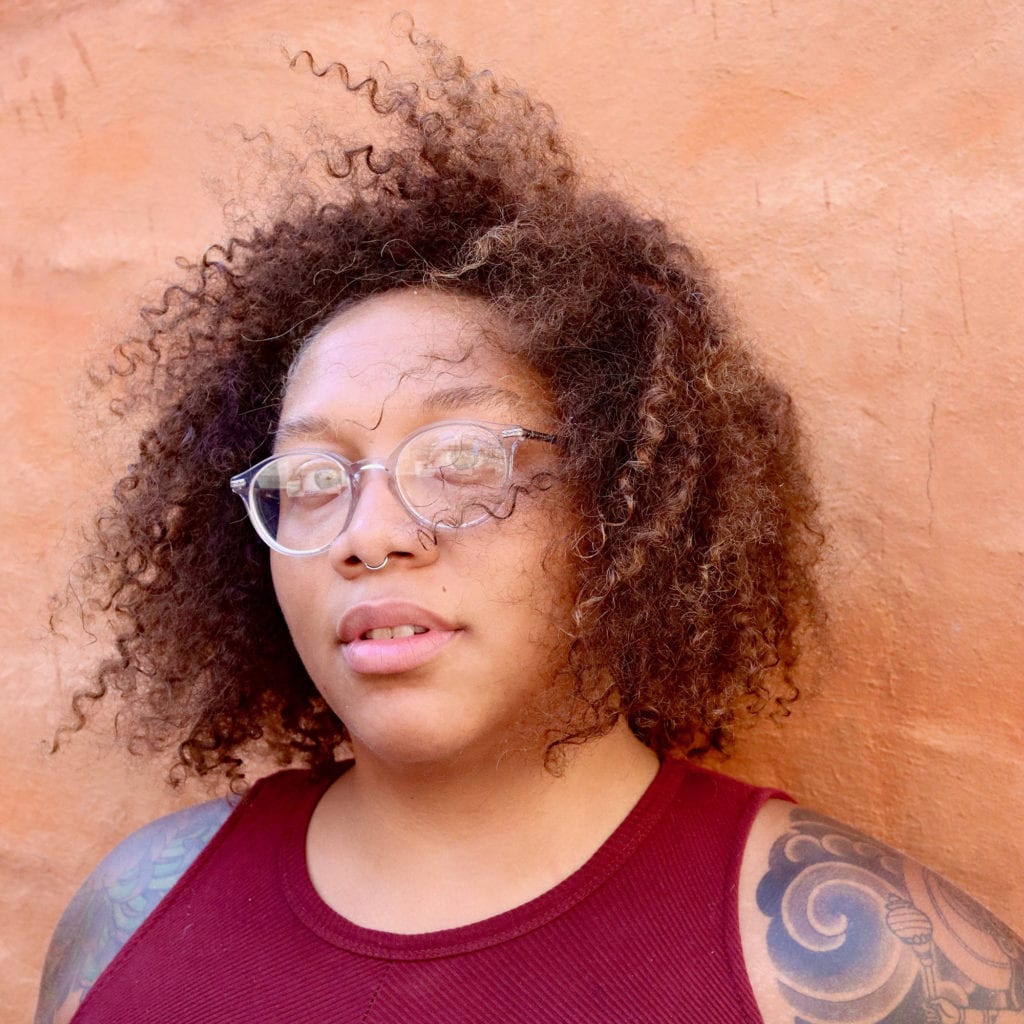
// With your yoga and doula work – do you think that the experience and the training you have with that is helpful for the activism work you’re doing now?
Yoga and doula work, that intersection for me — that’s where the activism really starts to come in. My doula training was specifically for BIPOC by Chanel Porchia from Ancient Song Doula Services in Brooklyn. Her training was for marginalized communities and not your typical family formula. I started doula work as a form of my own activism. Learning about all the injustice that happen to Black and Brown women in the healthcare system, pairing that with the yoga community and how the yoga community has been so whitewashed for so many years. The more I got involved and the more this movement came about, then I’m starting to see how it all intersects. My doula work really reinforced my yoga work. I was like, what is going on? There are only white people teaching this non-white thing.
The yoga community has really not shown up in the way that I thought that they would. I’m here to support people, always, because that’s who I am. I’m a support person. That’s what I do in yoga, that’s what I do in my doula work, that’s what I do in this activism work. For me, I have to hold people accountable in that same way. I can support you, but in that support I have to hold you accountable.
When I try to hold people accountable in the yoga world, they just disappear. It’s been really sad for me to watch a community kind of crumble away from me. But another part of that community is rising up and being there to support.
To bring it all back together, that’s what all of this work is. It is all activism. It’s all one thing layered on top of the other. Every system has racism in it. It’s intertwined into everything.
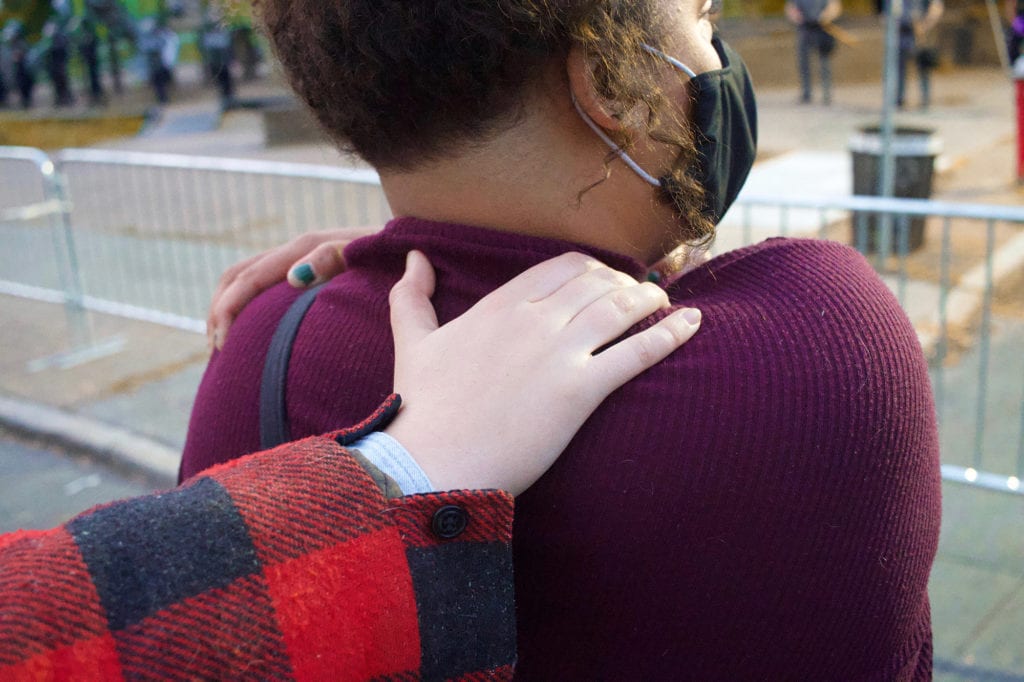
// Lately you’ve been posting about the lack of food options in Arbor Hill. There’s no grocery stores. Some restaurants won’t deliver there. It’s just a huge thing. Is that something you’re looking to work on?
By no means is anything my own idea. Everyone knows about it. Arbor Hill is pushed over to the side and everyone pretends that it’s not there. But it is there. It should be elevated and people who live in the neighborhood should be amplified. It’s a marginalized community.
In Albany in general there’s barely any grocery stores. If you can’t walk there, you have to get transportation. I’m very lucky, I have a car. It takes me 25 minutes to go to the grocery store and get food for the week. Someone else who doesn’t have a car, it could take them hours. And now, with COVID, the buses don’t run regularly. You’re adding an extra layer. And childcare, because none of the kids are at summer camp. And then money, because everyone’s not working at the same capacity. COVID has added so many different layers to everything now.
The entire setup of Albany is red-lined. It is very evident when you cross over Central Avenue on Lark Street – that part of Lark is not getting the same benefits and resources as this part of Lark. Every other building on Lark Street past Central has an X on it. Those all could be storefronts, they could be businesses, they could be nicer houses.
Popular brunch places around here are not delivering to Arbor Hill. Why? I hear people say that they’re worried they’re going to get robbed — but why? When you say things like that, you’re making it worse.
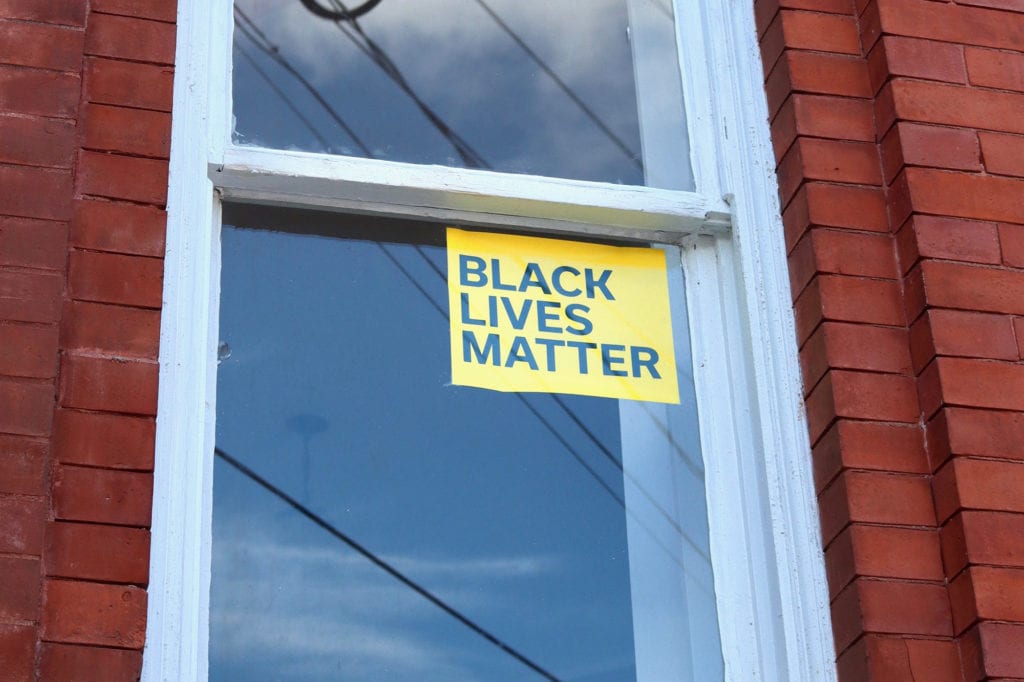
My next step is to take a step back. I can continue raising money – that is sustained on its own. But I’m not a part of the Arbor Hill neighborhood. I’m a part of the Black community, but I can’t act like I know what they need. So it’s going to be important for me to go listen, the way that white people should. Trust me, nobody in Arbor Hill wants white people to come in there and save them. Nobody needs that.
How much money do you spend on this street to fix it, to write ‘Black Lives Matter’? I know the city didn’t do that, but they should come with that same energy for Arbor Hill, for West Hill, for the South End. Go listen to what people are saying, offer them a resource and then step back. Let that thing happen. Let the people who are in that place help make it happen.
Stop appointing one white person to go into Arbor Hill to fix their food injustice so it becomes this big white thing. Don’t do that. Don’t put it in a Black neighborhood and then not let Black people use it. Don’t do it without the permission of people in the neighborhood. Find the people in that community. There are leaders in the community. Just because you don’t know them, just because you don’t hear their names doesn’t mean they don’t exist. I just think that as a community we could be doing more and we could do better and we could just try. That’s it, just try.
There’s that extra layer of not just doing the thing and giving the money. You also have to do internal work before that. That’s where the crash is with that type of stuff. People are really eager to give money and to repost on social media and to wave at me and say hi and thank me for what I’m doing. But what kind of work are you doing for yourself behind the scenes, the work that people don’t see you do?
We need to push into things that are systemic. Not just raise money and give money away. How can we dismantle the system and then rebuild it in a way to diversify who’s involved, who’s running everything, and where the money is being dispersed to? That’s important. It means it’s going to take down a lot businesses. It means it’s going to take down a lot of people. It’s not a matter of taking them down for them to stay down. It’s for them to get off their high horse and to be like, ‘OK, I am a part of the problem.’
The people that decide that calling people out is bad — no, it’s not bad. It’s a form of protest. It’s a form of liberation, and that is why things are happening now.
